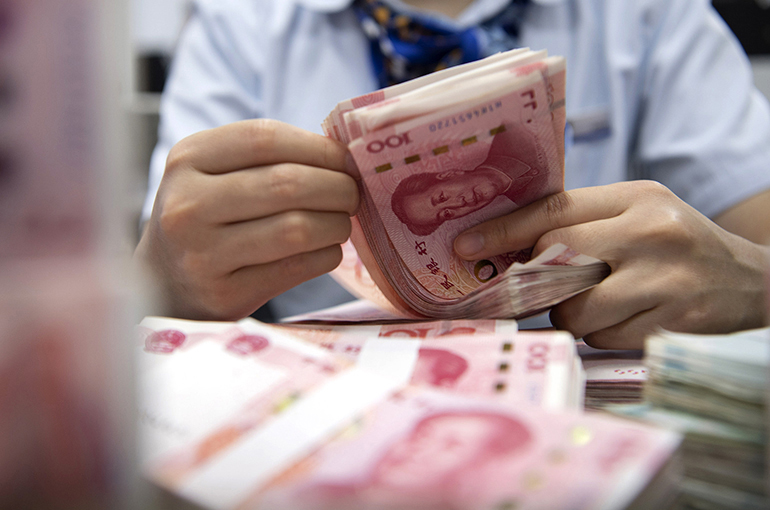 China’s Central Bank Raises Key Parameter to Defend Yuan
China’s Central Bank Raises Key Parameter to Defend Yuan(Yicai) Jan. 13 -- The People's Bank of China raised a key parameter for cross-border financing to prevent excessive depreciation of the Chinese yuan against the US dollar, the latest in a series of measures aimed at bolstering the redback.
The central bank today raised the macro-prudential adjustment parameter for cross-border financing to 1.75 from 1.5. This parameter sets the upper limit of cross-border financing for Chinese firms and financial institutions.
Governor Pan Gongsheng also reiterated the PBOC's commitment to maintaining yuan stability. Speaking at the opening ceremony of the Asian Financial Forum, he said the central bank would “resolutely correct market pro-cyclical behaviors, address actions that disrupt market order, and prevent the risk of exchange rate overshooting.”
The higher parameter will boost dollar liquidity in China, alleviating tight dollar supply and thereby stabilize the exchange rate, said Wang Qing, chief macro analyst at Golden Credit Rating.
The move comes after the PBOC revealed plans last week to auction CNY60 billion (USD8.2 billion) of six-month bills in Hong Kong on Jan. 15 with the aim of steadying the yuan. That announcement followed the yuan weakening to its lowest level in more than a year versus the greenback.
The US Dollar Index, a measure of its value relative to a basket of other currencies, has strengthened since the third quarter of last year as expectations for further US interest rate cuts has waned, putting greater pressure on the yuan. On Jan. 3, the yuan sank to less than 7.3 versus the dollar, the lowest since November 2023. As of 6 p.m. today, it was trading around 7.33.
If the exchange rate once again deviates from fundamentals, the Chinese authorities will promptly act to control it, Wang said, including by adjusting the daily reference rate, around which the yuan is allowed to move 2 percent either way, by lowering the foreign exchange reserve requirement ratio, or the percentage of foreign exchange financial institutions must hold in reserve, and by cutting interest rates on domestic US dollar deposits.
Editors: Dou Shicong, Emmi Laine